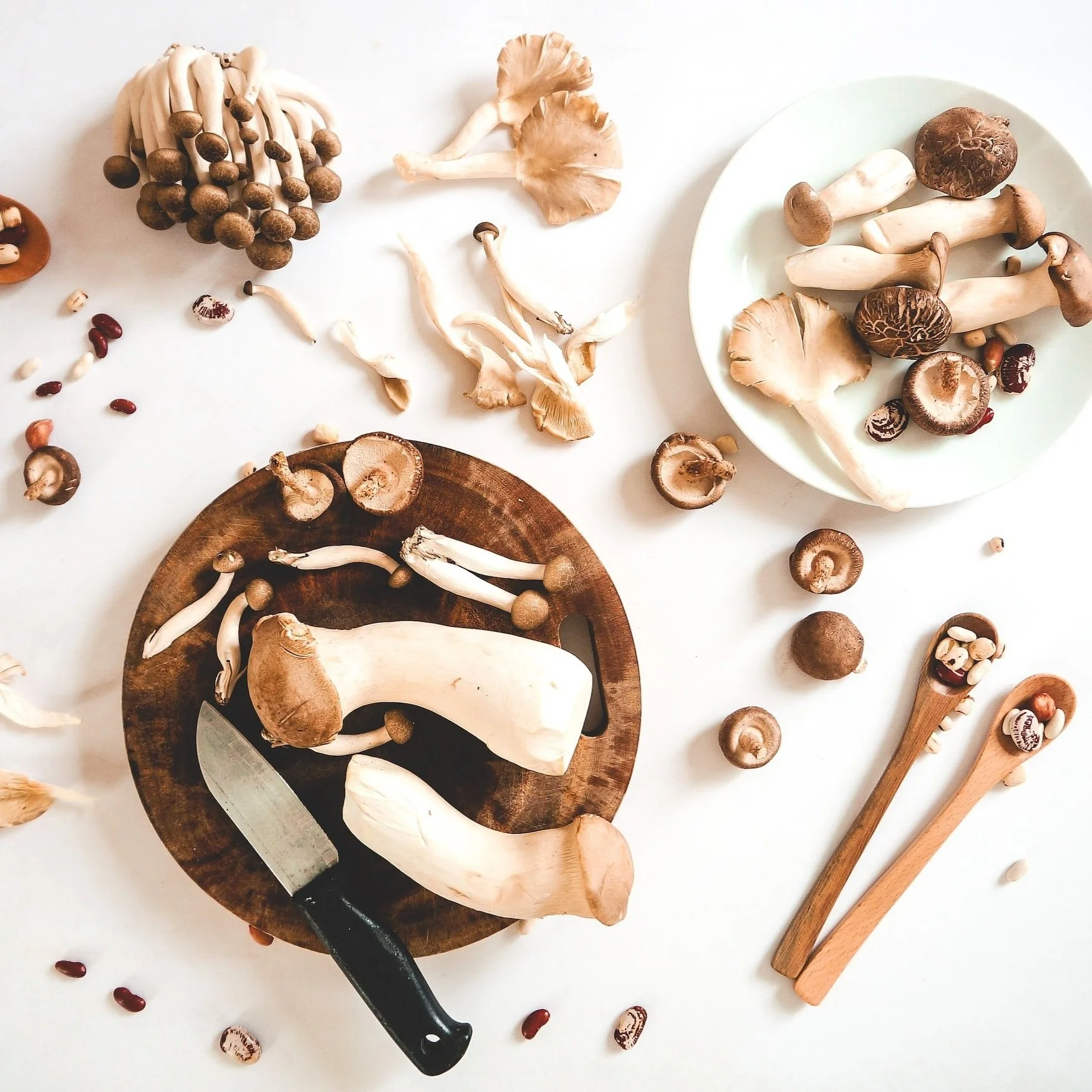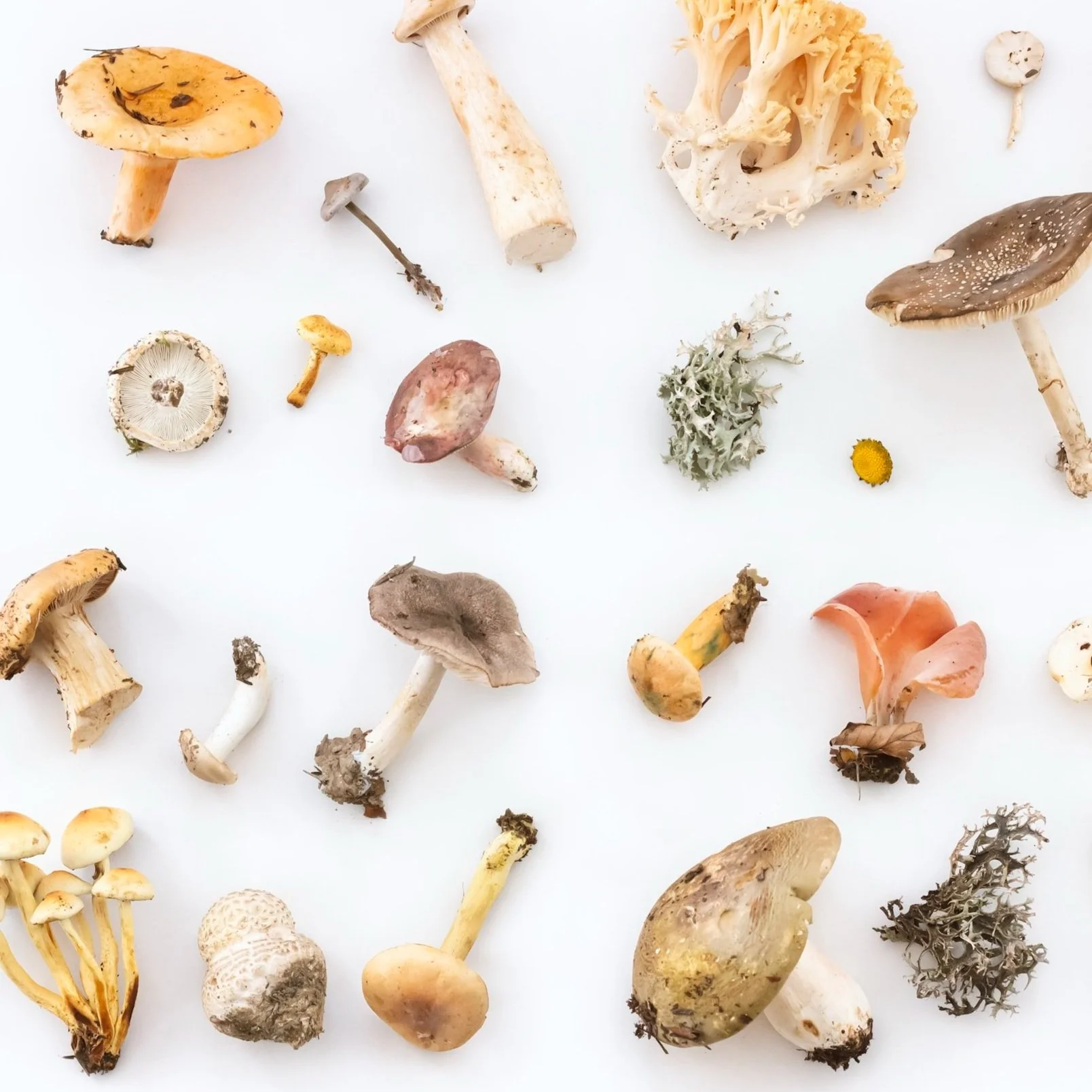The Health Benefits of Adaptogenic Mushroom Tea: A Guide to Its Types and Preparation
Adaptogenic mushrooms are a type of mushroom that are known for their ability to help the body adapt to stressors and improve overall health. These mushrooms have been used for centuries in traditional medicine for their medicinal properties, and have recently gained popularity in the Western world for their potential health benefits.
One way to consume adaptogenic mushrooms is by brewing them into a tea. Adaptogenic mushroom tea is made by simmering dried or powdered mushrooms in hot water for a period of time, usually around 20-30 minutes. The resulting liquid can be consumed as is, or it can be flavored with herbs or sweeteners.
The Magic of Adaptogenic Mushroom Tea: A Comprehensive Guide to Its Properties, Benefits, and Flavors
Adaptogenic mushroom tea is a powerful, plant-based beverage that can help reduce stress, boost immunity, and promote overall wellness - learn more about its benefits and how to make it with our guide.
What is Adaptogenic Tea?
Adaptogenic tea is an infusion of super herbs and super mushrooms that make a healing cup of adaptogenic tea. Adaptogens are super foods and super mushrooms that have a special positive impact on the body. Adaptogens have anti stress functions that help keep us young and healthy.
Some plants that are classed as adaptogens that can be enjoyed in tea are: ashwagandha, schisandra berries, lycium (goji) Berries, holy basil (tulsi) and maca.
Some mushrooms that are classed as adaptogens that can be enjoyed in tea are: lions mane mushrooms, reishi mushrooms, chaga mushrooms and cordyceps mushrooms.
Are Adaptogenic Mushrooms the Same as Magic Mushrooms?
Adaptogenic mushrooms are not the same as magic mushrooms. Magic mushrooms are psychedelic mushrooms, where as adaptogenic mushrooms, whilst still magical, have medicinal properties.
Adaptogens are found in plants that work by helping to heal our bodies. They have been used in ayurvedic medicine for centuries to aid in ancient healing practices. Many adaptogens are made into powders, capsules or tinctures. There are reports that adaptogens have anti-stress and anti-aging effects on the body. Different adaptogens have different functions such as improving attention, improving endurance, reducing stress and boosting the immune system.
What Foods are High in Adaptogens?
Some foods and some mushrooms are high in adaptogens. One particular adaptogenic mushroom that is easy to purchase in the supermarket is the shiitake mushroom. Shiitake mushrooms are known for their immune boosting, anti inflammatory and tumour fighting properties. They are great to add in teas and to into vegan stews for an added ‘meaty’ texture.
Another superb adaptogenic mushroom is the reishi mushroom, also known as the ‘King of Mushrooms’ reishi mushrooms are known for aiding in weight loss and helping to reduce blood sugar levels. Reishi mushrooms are also great to add into teas. Try adding reishi mushrooms and making this chocolate mushroom tea!
Best Adaptogenic Mushrooms
Some of the best adaptogenic mushrooms include:
Reishi (Ganoderma lucidum): Known for its ability to reduce stress and anxiety, improve sleep, and boost the immune system.
Cordyceps (Cordyceps sinensis): Known for its ability to improve endurance and energy, and to improve lung function.
Chaga (Inonotus obliquus): Known for its ability to boost the immune system and to have anti-inflammatory and antioxidant effects.
Lion's Mane (Hericium erinaceus): Known for its ability to improve brain function and cognitive function.
Benefits of Adaptogenic Mushroom Tea
Adaptogenic mushrooms have a wide range of potential health benefits, including:
Improved immune function: Adaptogenic mushrooms contain beta-glucans, which are compounds that help to stimulate the immune system and improve its response to pathogens.
Reduced stress and anxiety: Adaptogenic mushrooms can help to regulate the body's stress response and reduce feelings of anxiety and depression.
Increased energy and endurance: Adaptogenic mushrooms can help to improve the body's ability to cope with physical and mental stressors, which can lead to increased energy and endurance.
Improved brain function: Adaptogenic mushrooms contain compounds that can help to improve brain function, including memory and cognitive function.
Prebiotics: Some adaptogenic mushrooms contain prebiotics and beta-glucans. Prebiotics are great for gut health and for boosting immunity. Beta-glucans are also good for immune function and have infection fighting properties. Making a cup of mushroom tea is an easy way to soak up these healthy benefits.
Are Mushrooms Good for a Hangover?
Mushrooms are known to be helpful for a hangover as they contain selenium. Alcohol can cause essential vitamins and minerals, like selenium, to be lost and so taking back those essential vitamins and minerals is a good way to get over a hangover much faster. Another way to aid in a speedy recovery from a hangover is to drink a cup of green tea. Tea, including green tea, contains L-Theanine. L-Theanine is an amino acid that can help you feel more relaxed. This can be helpful for the anxious shakes that a hangover may cause.
Risks of Adaptogenic Mushroom Tea
As with any dietary supplement, there are risks associated with consuming adaptogenic mushroom tea. These risks include:
Possible drug interactions: If you are taking any medications, it's important to talk to your healthcare provider before consuming adaptogenic mushroom tea, as it may interact with certain medications.
Allergic reactions: Some people may be allergic to certain types of mushrooms, so it's important to be aware of any allergic reactions you may have and to avoid consuming mushrooms that cause an allergic reaction.
Mastering the Art of Making Adaptogenic Mushroom Tea: A Step-by-Step Guide to Unlock Its Health Benefits
Making adaptogenic mushroom tea is easy and can be a great addition to your daily routine - our step-by-step guide will show you how to make it at home and enjoy its many health benefits.
Uses of Adaptogenic Mushroom Tea
Adaptogenic mushroom tea can be used for a variety of purposes, including:
Daily supplement for overall health and well-being: Adaptogenic mushroom tea can be consumed daily as a natural supplement to support overall health and wellness, thanks to its many beneficial properties.
Stress management: Adaptogenic mushroom tea is often used to help the body adapt to and manage stressors, reducing feelings of anxiety and promoting a sense of calm.
Immune system support: Adaptogenic mushroom tea is believed to help boost immune function, making it a popular choice during cold and flu season or as a general immune system booster.
Cognitive function: Some research suggests that adaptogenic mushroom tea may also help improve brain function and cognitive performance, making it a great choice for anyone looking to enhance their mental clarity and focus.
How to Make Mushroom Tea: Medicinal Mushroom Tea
Here’s a great recipe for making medicinal mushroom tea:
INGREDIENTS (Serves 1):
1 Heaped Teaspoon of Green Tea Leaves
2 Inch Piece of Ginger - Sliced
1-2 Tablespoons of Honey - To Taste
Slices of Lemon - Optional
METHOD
In a small saucepan, add the sliced reishi mushrooms and the sliced ginger, cover with water and place the lid on top. Bring to the boil and then reduce the heat so that the mixture is simmering.
Allow to gently simmer on a low heat for 1-2 hours to extract all the goodness from the ingredients. Remember to keep checking on your infusion and top up with water if necessary.
After 1-2 hours, remove from the heat and add the green tea and the honey. Allow to infuse for 3-5 minutes before removing the mushrooms, ginger and leaves through a fine mesh strainer.
Add optional slices of lemon and enjoy.
How to Make a Matcha and Shiitake Mushroom Breakfast Smoothie
Here’s how to make a really simple smoothie which incorporates mushrooms and matcha green tea, both of which are highly beneficial to the body.
Tea itself is high in antioxidants and matcha green tea contains higher amounts. This is due to two reasons; firstly, matcha is grown and produced to retain it’s freshness by minimal processing. Secondly, the whole leaf is consumed in concentrated quantities rather than taken by an infusion, just as regular tea is enjoyed. Recent studies suggest that the number of catechins (anti oxidants) found in matcha is up to 137 times higher than in green tea.
INGREDIENTS (Serves 1):
1/2 Cup of Shiitake (or Button Mushrooms)
1 Teaspoon of Matcha Green Tea Powder
1 Frozen Banana
1/2 Cup of Frozen Blueberries
1 Cup of Almond Milk
1 Tablespoon of Cashew Butter
1 Tablespoon of Honey Optional
METHOD
Place all of the ingredients into a high powered blender and combine until really smooth.
Pour into a large tall glass and enjoy for a sweet breakfast boost.
Healthy Adaptogenic Mushroom Tea
Adaptogenic mushroom tea is a delicious and easy way to consume adaptogenic mushrooms and reap their potential health benefits. These mushrooms have been used for centuries in traditional medicine for their medicinal properties and have recently gained popularity in the Western world. Some of the best adaptogenic mushrooms include Reishi, Cordyceps, Chaga, and Lion's Mane. These mushrooms have been known for their ability to reduce stress and anxiety, improve sleep, boost the immune system, improve endurance and energy, improve lung function, improve brain function, and cognitive function. However, it's important to keep in mind that consuming any dietary supplement has some risks, and it's always best to talk to your healthcare provider before consuming any new supplement. Making adaptogenic mushroom tea is easy, and it's a delicious way to consume adaptogenic mushrooms. With the right combination of mushrooms, you can tailor the tea to suit your needs and preferences.
Read More of my Articles About Tea
It is important to note that any health advice provided in this article is for informational purposes only and should not be taken as medical advice. Always consult with a qualified healthcare professional before making any changes to your diet, exercise routine, or overall health. The information provided is not a substitute for professional medical advice.





